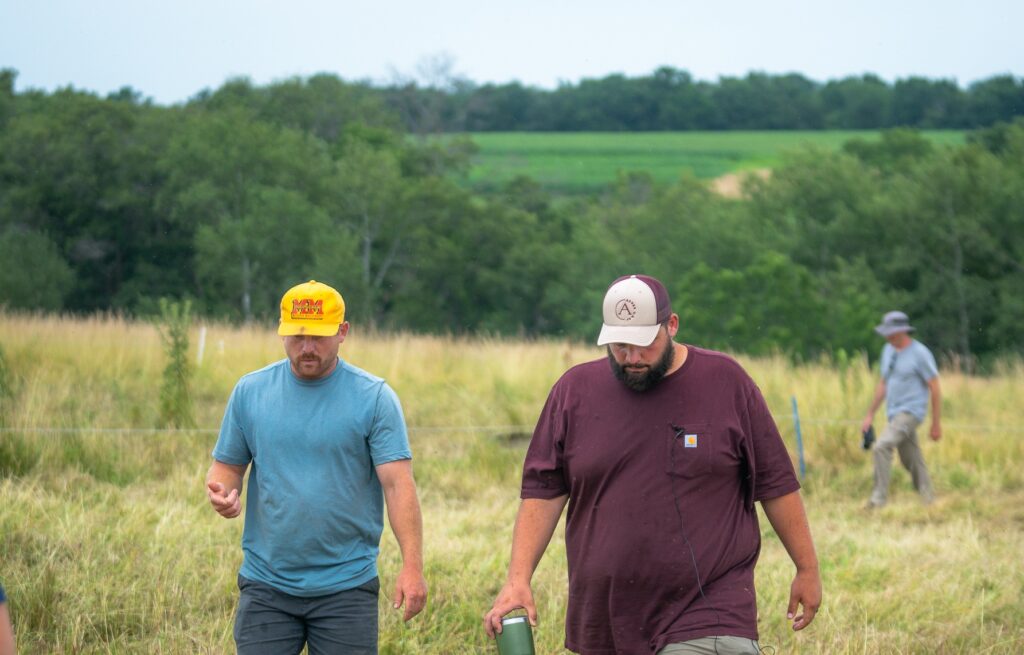What does a control freak do once the system takes care of itself?
As I walk around my 35-acre pasture, I am in awe of the abundance and diversity it has produced this year.
Wildflower fields are blooming, humming with bees and butterflies. Cover crop fields are roaring with growth. Hogs are rooting to prepare the fall cover crop fields, and cattle are grazing on grass that stretches over their backs, trampling it down to create a warm blanket for the new seeds. They dig below the old growth to grab bites of alfalfa, red clover, white clover, hairy vetch, chicory and, of course, some weeds. Dung beetles occupy every poop they take — something I didn’t see for the first three years of doing this.
Here in mid-July we have had zero pink eye, foot rot or worm issues and haven’t needed to apply any sort of fly control. We are actually doing it — the animals are doing it — on grass and movement. They’re raising their babies and finishing out to be beautifully marbled steaks. This has been the most productive year this farm has provided me, and this is the least amount of time I have spent actually farming.
This is both a positive and a negative, of course. I’ve been locked in the office far more than I would care to admit. I often think about Charles Walters and the countless hours he must have spent behind a desk, literally putting pen to paper and then cutting and pasting typed text onto sheets for printing. It’s a sacrifice he made, and one I am willing to make in the short term.
My soul belongs outside, though — in the field. I want to put my brain energy toward designing farming systems like those explained by Mark Shepard, Gary Zimmer and John Kempf. I want to test more theories and transition more acreage. I want to manage thousands of acres of forage with hundreds of ruminants eating, trampling and pooping, all while creating beautiful landscapes.
Despite my time indoors, the beauty I’ve seen on my farm this year has happened with little direct involvement from me. My part-time intern has skillfully managed our farm, handling the daily cattle moves, weekly pig moves and daily chores. I hope to get back there soon, and I believe I will. For now, I take short breaks and weekends to admire the system we’ve created — one that doesn’t require my daily presence. It’s a system we taught an intern in a month — a system that I poured hard work into in previous years to make it as efficient and lean as it is now.
It’s a system I am a little jealous of, since it doesn’t really need me any longer! What does a control freak do once the system takes care of itself?
I acknowledge the abundance of rain and great weather that has made this year both easier than some previous ones. This has undoubtedly been a fortunate year for a grass farmer like me. But this system is set up for both the downturns, like last year, and the upswings, like this one. It needed the initial artistry and some weekly oversight, but now it operates independently. And it is a scalable system.

So, while I sit behind a desk, I feel a mix of pride and self-pity. I’m proud that we’ve created a system that is beautiful and that can be replicated on thousands of acres, and I’m sad that it works just fine with me behind a desk!
But I believe that the time spent behind the desk is just as important. Because what is a system like this worth if there’s no microphone to broadcast what we discover? That must have been what kept Charles Walters going behind the desk, and it keeps me going too.
Hope to see you all in December!
Taylor Henry is the owner and CEO of Acres U.S.A.

















